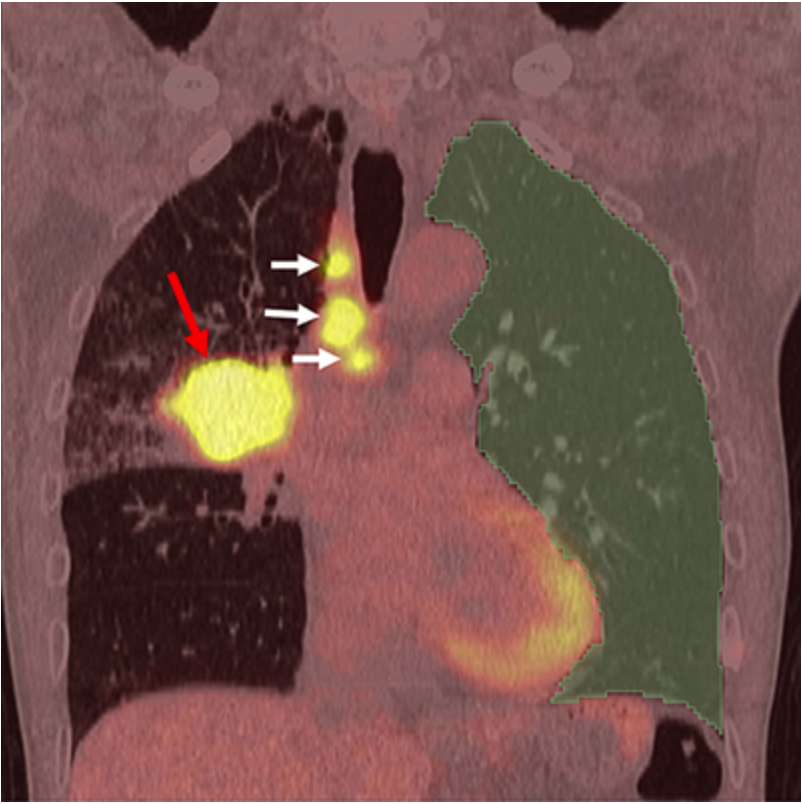AI Analysis of PET/CT Images Predicts Immunotherapy Side Effects in the Lung
Images

Satoshi Watanabe, MD, PhD, and his teams from Niigata University have revealed that PET/CT image analysis using artificial intelligence (AI) can predict the occurrence of interstitial lung disease, known as a serious side effect of immunotherapy in lung cancer.
Immunotherapy has dramatically improved the treatment outcomes of primary lung cancer; however, it sometimes causes a serious side effect called interstitial lung disease. Interstitial lung disease is characterized by scarring (fibrosis) of the lungs and may be life-threatening owing to respiratory failure. Unfortunately, it is difficult to predict the occurrence of interstitial lung disease induced by immunotherapy. Accordingly, effective methods for predicting the risk of developing interstitial lung disease after immunotherapy are required.
This retrospective study investigated 165 patients with primary lung cancer who received immunotherapy at Niigata University Medical and Dental Hospital. As it is suggested that interstitial lung disease arises when inflammatory cells activated through immunotherapy damage healthy lung as well as cancer cells, the researchers hypothesized that patients with severe inflammation in healthy lungs prior to immunotherapy are more likely to develop interstitial lung disease after the treatment. Dr Watanabe and his teams focused on PET/CT scan, a nuclear imaging test that is able to detect inflammation in the whole body. The researchers quantified the degree of inflammation in noncancerous lungs, namely lung regions without cancer, using AI analysis of PET/CT images. The study demonstrated that the risk of developing interstitial lung disease after immunotherapy is approximately 6.5 times higher in patients with high inflammation in the noncancerous lung than in those with low inflammation.
Dr Motohiko Yamazaki says, "PET/CT is generally performed to detect cancer metastasis, but it would potentially be useful for estimating the risks of side effects associated with cancer treatment. The results of our study may not only help to predict the occurrence of interstitial lung disease after immunotherapy, but also to elucidate the mechanism of this serious side effect. We should conduct a multicenter prospective study for further investigation."
Related Articles
Citation
AI Analysis of PET/CT Images Predicts Immunotherapy Side Effects in the Lung. Appl Radiol.
November 15, 2024